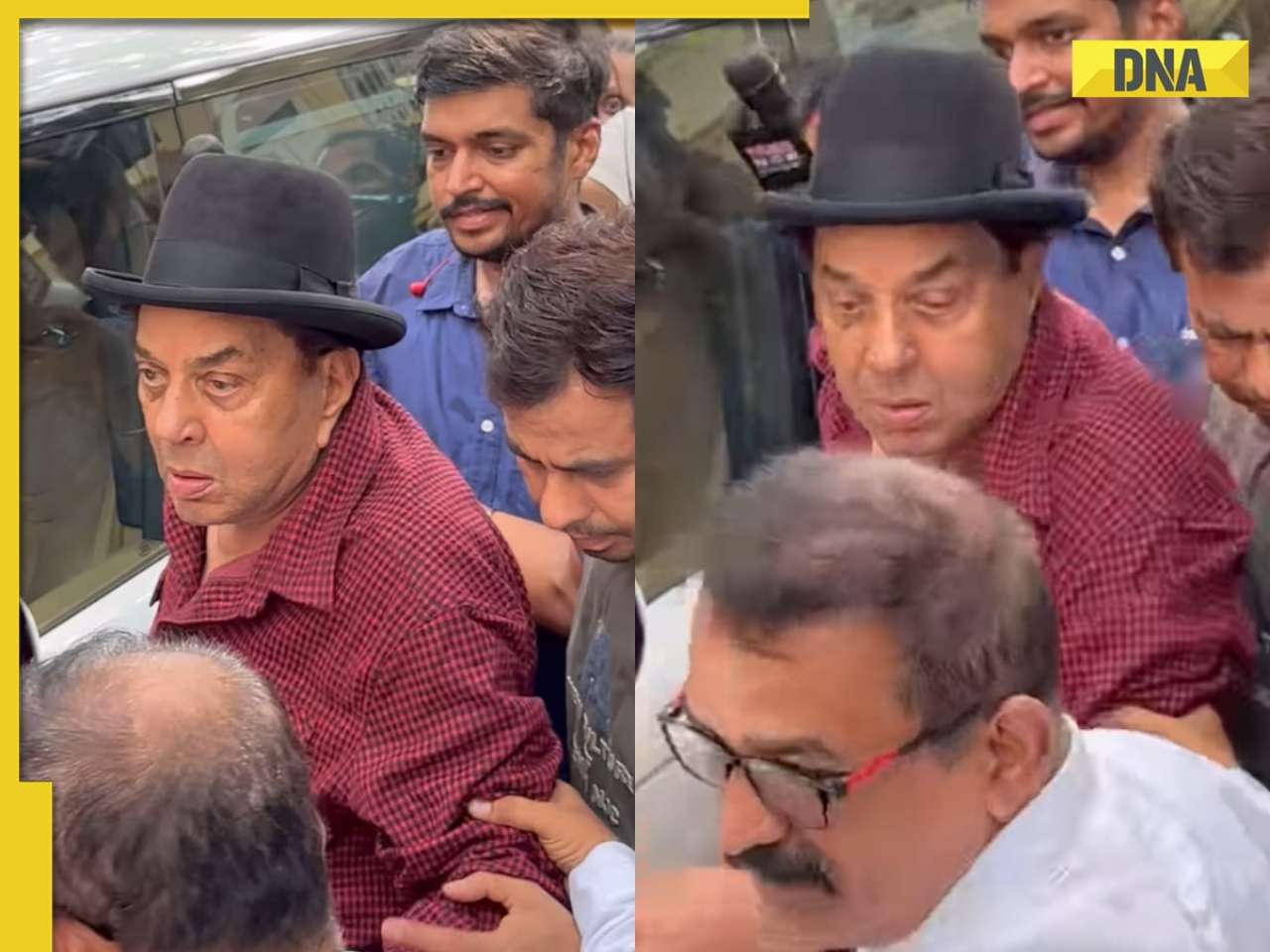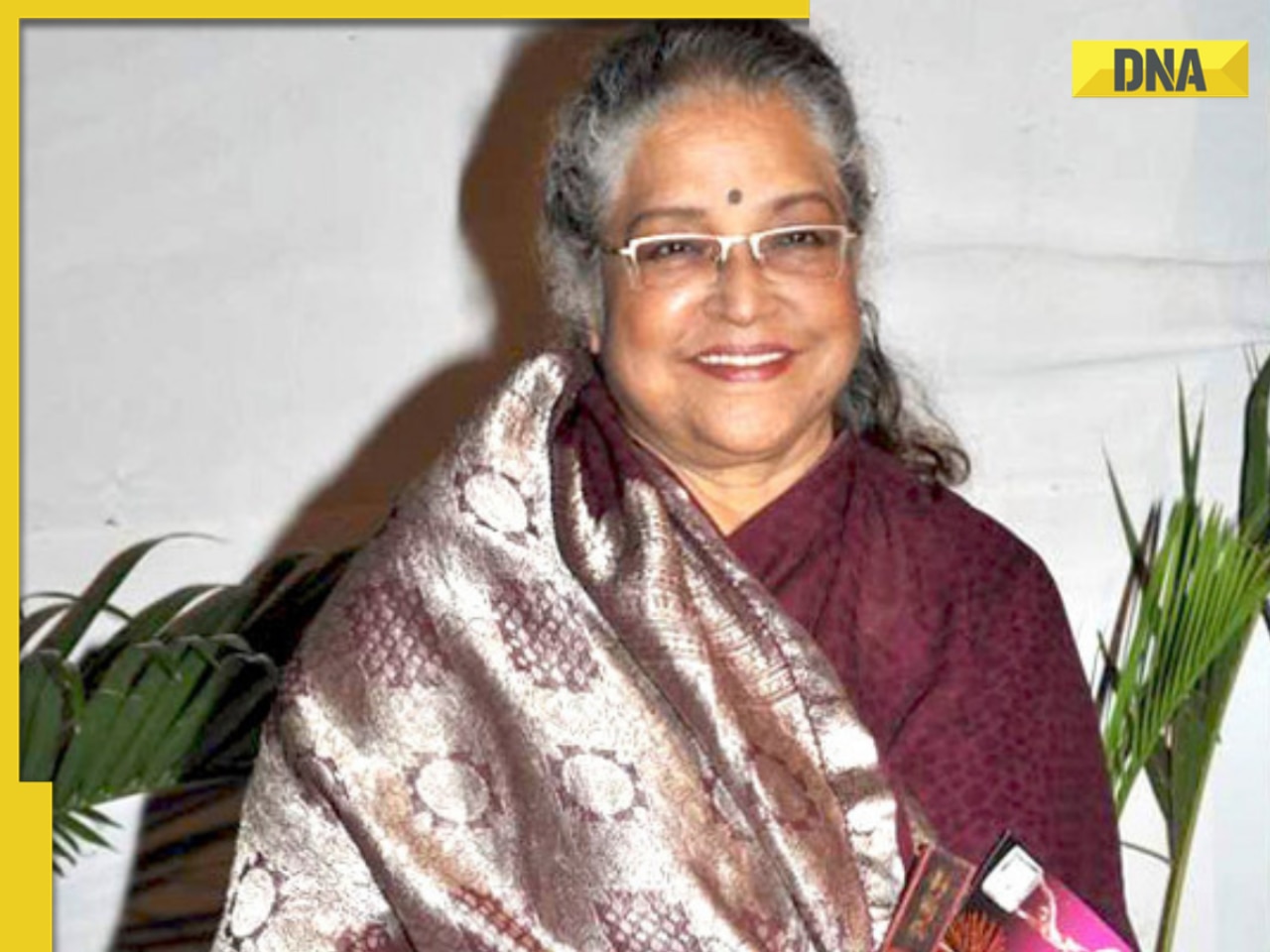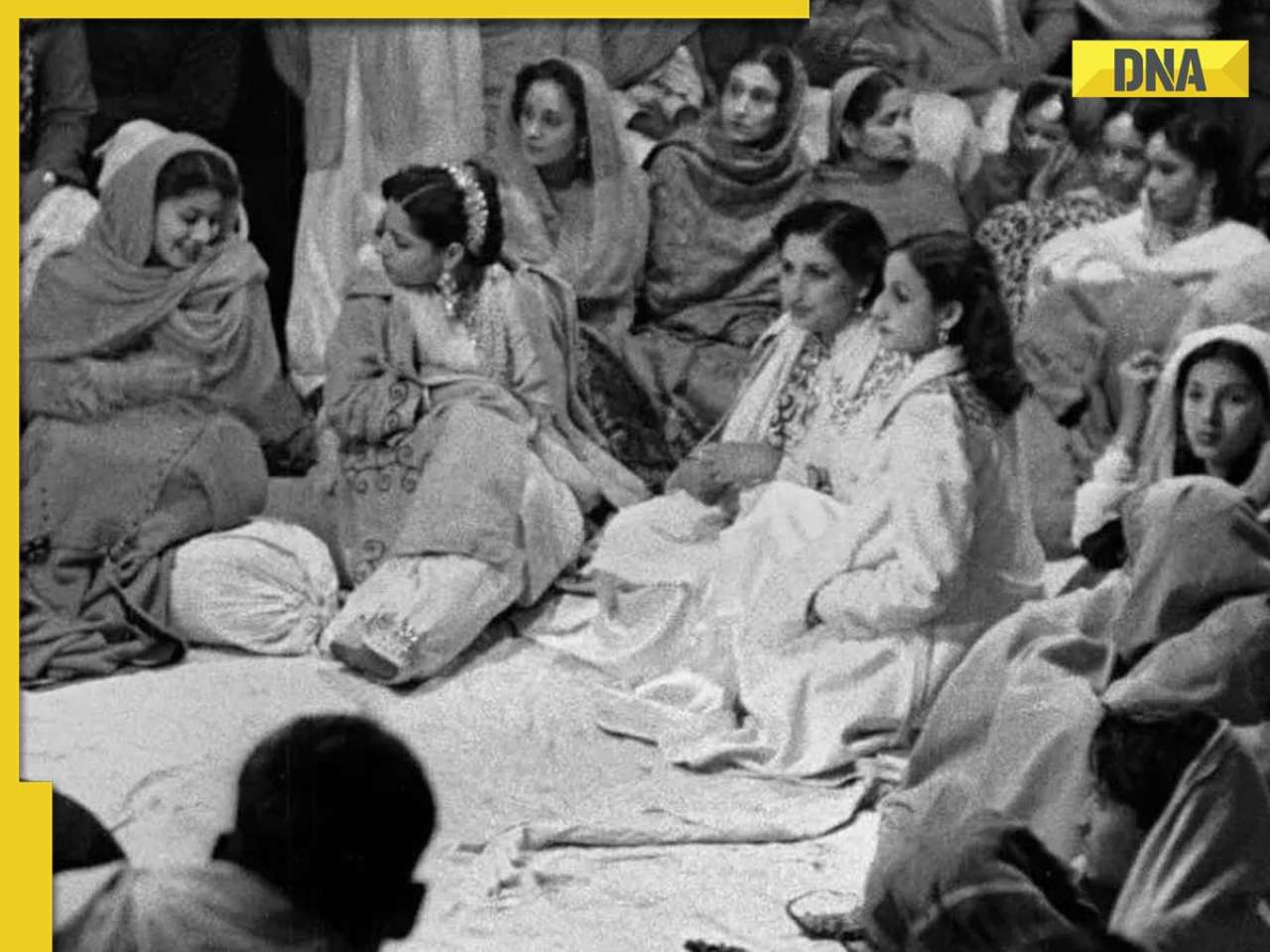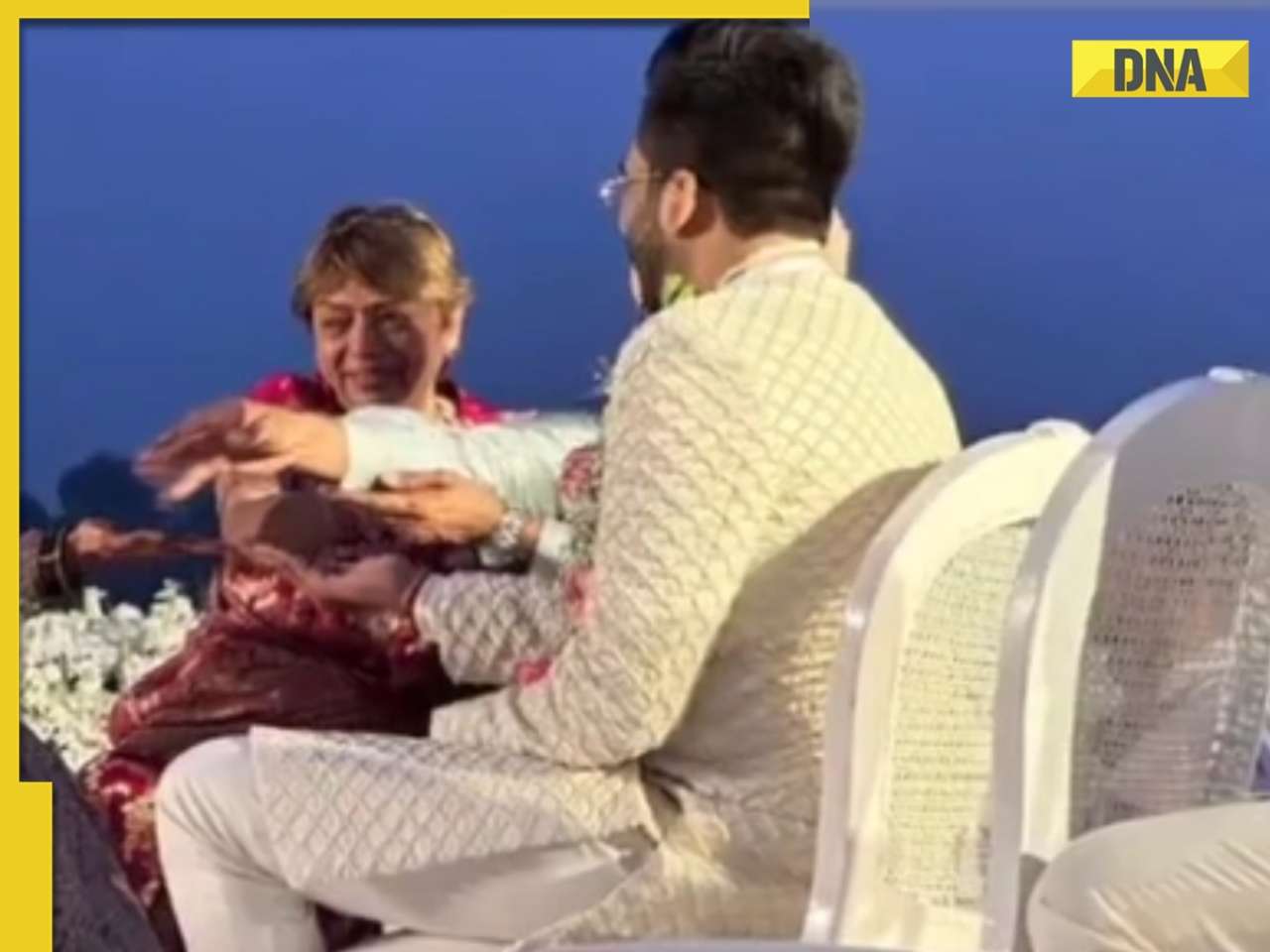The Academy of Motion Pictures Arts and Sciences will restore Satyajit Ray's Bengali classic 'Kanchenjungha', his first colour film, whose original negative was beyond repair.
KOLKATA: The Academy of Motion Pictures Arts and Sciences will restore Satyajit Ray's Bengali classic 'Kanchenjungha', his first colour film, whose original negative was damaged beyond repair.
"The Academy will have to do with the copy of the master negative of the film, made by the maestro in 1962, as the original negative was destroyed due to mishandling," Sandip Ray, son of the film colossus whose 16th death anniversary would be observed on April 23, told PTI.
The film is about an upper class Bengali family, who converse in a sprinkling of English and Bengali, on vacation in the popular hill resort of Darjeeling, near Kanchenjunga, and their relationship.
Stating that the Academy, with which he is in touch, would have to digitally restore the film from the copy, Sandip said, "the entire process is likely to take several
months as they are also looking for the best available technology which is fast changing."
He said the master negative of the film, starring one of the Bengali film doyens Chhabi Biswas, was damaged beyond repair as the canned stock was kept exposed to the sun and rain on the roof of a film laboratory in Mumbai.
"This happened as the producers probably lost interest since the film did not bring the expected box office returns and the storage fee was not given to the lab," he said.
The film's titles show the NCA as the production company while Harrison Pictures were the Indian distributors.
"In the absence of the original negative, they had to scour other sources and procured another negative, copied from the original lying with the Pune Film archives," Sandip said.
"While the existing versions of the film were copied from the copy of the negative, they could not reproduce the typical tonal quality of the work so lovingly captured by my father.
The restoration by the Academy will hopefully take care of that and help in preserving it for future generations," he said.
Besides Kanchenjungha, the Academy will also take up restoration of 'Sikkim', Ray's documentary made in 1971 on the erstwhile princely state commissioned by then ruler Chogyal and his American wife Hope Cook, Sandip said.
The Academy would digitally restore the film, two prints of which were traced a few years ago at the British Film Institute and Brown University, US, Sandip said.
"The print, lying with the BFI, is in good condition and the Academy will use this for the restoration work," Sandip said referring to the little known work of Ray which had been
at the receiving end of the Censor following Sikkim's merger with India in 1975.
Believed to be lost for a long time, the print was found in 1997 in the US which was followed by the finding of another print in 2003 at the BFI.
Almost 95 per cent of the black and white films of Ray, who received the lifetime Oscar award days before his death in 1992, have been restored by the Academy, Sandip said.
"While the Academy mostly banked on chemical non-digitalisation process for restoring other films of father to retain the original hue, flavour and tonal quality, the absence of the original negative of 'Kanchenjunga' left them with no alternative but to take recourse to digital means as the chemical process will not yield the desired effect from a secondary source."
Restoration and preservation of 'Chiriakhana' and a documentary on Rabindranath Tagore will also be taken up in due course, Sandip said.
About recent reports of a Mumbai-based firm contemplating to colour 'Pather Panchali', which was made in 1955 by Ray, Sandip said "classics should be left untouched by such experiments."
Apparently annoyed over the initiative by the firm, which had told a section of media about its move a month ago, he said, "I hope it is a closed chapter. But if there are further developments, which includes seeking the permission of the film's producer, the West Bengal government, we will act accordingly."
He said such initiatives were never thought of for classics like 'Citizen Kane' or 'Battleship Potemkin'.
"Is it not the same for 'Pather Panchali'?" Sandip asked referring to the film which created a new era of neo-realism in Indian cinema with its visual appeal enhanced by black and white imagery.
![submenu-img]() Balancing Risk and Reward: Tips and Tricks for Good Mobile Trading
Balancing Risk and Reward: Tips and Tricks for Good Mobile Trading![submenu-img]() Balmorex Pro [Is It Safe?] Real Customers Expose Hidden Dangers
Balmorex Pro [Is It Safe?] Real Customers Expose Hidden Dangers![submenu-img]() Sight Care Reviews (Real User EXPERIENCE) Ingredients, Benefits, And Side Effects Of Vision Support Formula Revealed!
Sight Care Reviews (Real User EXPERIENCE) Ingredients, Benefits, And Side Effects Of Vision Support Formula Revealed!![submenu-img]() Java Burn Reviews (Weight Loss Supplement) Real Ingredients, Benefits, Risks, And Honest Customer Reviews
Java Burn Reviews (Weight Loss Supplement) Real Ingredients, Benefits, Risks, And Honest Customer Reviews![submenu-img]() Gurucharan Singh is still unreachable after returning home, says Taarak Mehta producer Asit Modi: 'I have been trying..'
Gurucharan Singh is still unreachable after returning home, says Taarak Mehta producer Asit Modi: 'I have been trying..'![submenu-img]() RBSE 12th Result 2024 Live Updates: Rajasthan Board Class 12 results DECLARED, get direct link here
RBSE 12th Result 2024 Live Updates: Rajasthan Board Class 12 results DECLARED, get direct link here![submenu-img]() IIT graduate Indian genius ‘solved’ 161-year old maths mystery, left teaching to become CEO of…
IIT graduate Indian genius ‘solved’ 161-year old maths mystery, left teaching to become CEO of…![submenu-img]() RBSE 12th Result 2024 Live Updates: Rajasthan Board Class 12 results to be announced soon, get direct link here
RBSE 12th Result 2024 Live Updates: Rajasthan Board Class 12 results to be announced soon, get direct link here![submenu-img]() Meet doctor who cracked UPSC exam to become IAS officer but resigned after few years due to...
Meet doctor who cracked UPSC exam to become IAS officer but resigned after few years due to...![submenu-img]() IIT graduate gets job with Rs 45 crore salary package, fired after few years, buys Narayana Murthy’s…
IIT graduate gets job with Rs 45 crore salary package, fired after few years, buys Narayana Murthy’s…![submenu-img]() DNA Verified: Is CAA an anti-Muslim law? Centre terms news report as 'misleading'
DNA Verified: Is CAA an anti-Muslim law? Centre terms news report as 'misleading'![submenu-img]() DNA Verified: Lok Sabha Elections 2024 to be held on April 19? Know truth behind viral message
DNA Verified: Lok Sabha Elections 2024 to be held on April 19? Know truth behind viral message![submenu-img]() DNA Verified: Modi govt giving students free laptops under 'One Student One Laptop' scheme? Know truth here
DNA Verified: Modi govt giving students free laptops under 'One Student One Laptop' scheme? Know truth here![submenu-img]() DNA Verified: Shah Rukh Khan denies reports of his role in release of India's naval officers from Qatar
DNA Verified: Shah Rukh Khan denies reports of his role in release of India's naval officers from Qatar![submenu-img]() DNA Verified: Is govt providing Rs 1.6 lakh benefit to girls under PM Ladli Laxmi Yojana? Know truth
DNA Verified: Is govt providing Rs 1.6 lakh benefit to girls under PM Ladli Laxmi Yojana? Know truth![submenu-img]() Urvashi Rautela mesmerises in blue celestial gown, her dancing fish necklace steals the limelight at Cannes 2024
Urvashi Rautela mesmerises in blue celestial gown, her dancing fish necklace steals the limelight at Cannes 2024![submenu-img]() Kiara Advani attends Women In Cinema Gala in dramatic ensemble, netizens say 'who designs these hideous dresses'
Kiara Advani attends Women In Cinema Gala in dramatic ensemble, netizens say 'who designs these hideous dresses'![submenu-img]() Influencer Diipa Büller-Khosla looks 'drop dead gorgeous' in metallic structured dress at Cannes 2024
Influencer Diipa Büller-Khosla looks 'drop dead gorgeous' in metallic structured dress at Cannes 2024![submenu-img]() Kiara Advani stuns in Prabal Gurung thigh-high slit gown for her Cannes debut, poses by the French Riviera
Kiara Advani stuns in Prabal Gurung thigh-high slit gown for her Cannes debut, poses by the French Riviera![submenu-img]() Heeramandi star Taha Shah Badussha makes dashing debut at Cannes Film Festival, fans call him ‘international crush’
Heeramandi star Taha Shah Badussha makes dashing debut at Cannes Film Festival, fans call him ‘international crush’![submenu-img]() Haryana Political Crisis: Will 3 independent MLAs support withdrawal impact the present Nayab Saini led-BJP government?
Haryana Political Crisis: Will 3 independent MLAs support withdrawal impact the present Nayab Saini led-BJP government?![submenu-img]() DNA Explainer: Why Harvey Weinstein's rape conviction was overturned, will beleaguered Hollywood mogul get out of jail?
DNA Explainer: Why Harvey Weinstein's rape conviction was overturned, will beleaguered Hollywood mogul get out of jail?![submenu-img]() What is inheritance tax?
What is inheritance tax?![submenu-img]() DNA Explainer: What is cloud seeding which is blamed for wreaking havoc in Dubai?
DNA Explainer: What is cloud seeding which is blamed for wreaking havoc in Dubai?![submenu-img]() DNA Explainer: What is Israel's Arrow-3 defence system used to intercept Iran's missile attack?
DNA Explainer: What is Israel's Arrow-3 defence system used to intercept Iran's missile attack?![submenu-img]() Gurucharan Singh is still unreachable after returning home, says Taarak Mehta producer Asit Modi: 'I have been trying..'
Gurucharan Singh is still unreachable after returning home, says Taarak Mehta producer Asit Modi: 'I have been trying..'![submenu-img]() ‘Jo mujhse bulwana chahte ho…’: Angry Dharmendra lashes out after casting his vote in Lok Sabha Elections 2024
‘Jo mujhse bulwana chahte ho…’: Angry Dharmendra lashes out after casting his vote in Lok Sabha Elections 2024![submenu-img]() Deepika Padukone spotted with her baby bump as she steps out with Ranveer Singh to cast her vote in Lok Sabha elections
Deepika Padukone spotted with her baby bump as she steps out with Ranveer Singh to cast her vote in Lok Sabha elections![submenu-img]() Jr NTR surprises fans on birthday, announces NTR 31 with Prashanth Neel, shares details
Jr NTR surprises fans on birthday, announces NTR 31 with Prashanth Neel, shares details ![submenu-img]() 86-year-old Shubha Khote wins hearts by coming out to cast her vote in Lok Sabha elections, says meant to inspire voters
86-year-old Shubha Khote wins hearts by coming out to cast her vote in Lok Sabha elections, says meant to inspire voters![submenu-img]() Watch viral video: Man gets attacked after trying to touch ‘pet’ cheetah; netizens react
Watch viral video: Man gets attacked after trying to touch ‘pet’ cheetah; netizens react![submenu-img]() Real story of Lahore's Heermandi that inspired Netflix series
Real story of Lahore's Heermandi that inspired Netflix series![submenu-img]() 12-year-old Bengaluru girl undergoes surgery after eating 'smoky paan', details inside
12-year-old Bengaluru girl undergoes surgery after eating 'smoky paan', details inside![submenu-img]() Viral video: Pakistani man tries to get close with tiger and this happens next
Viral video: Pakistani man tries to get close with tiger and this happens next![submenu-img]() Owl swallows snake in one go, viral video shocks internet
Owl swallows snake in one go, viral video shocks internet


























































)
)
)
)
)
)